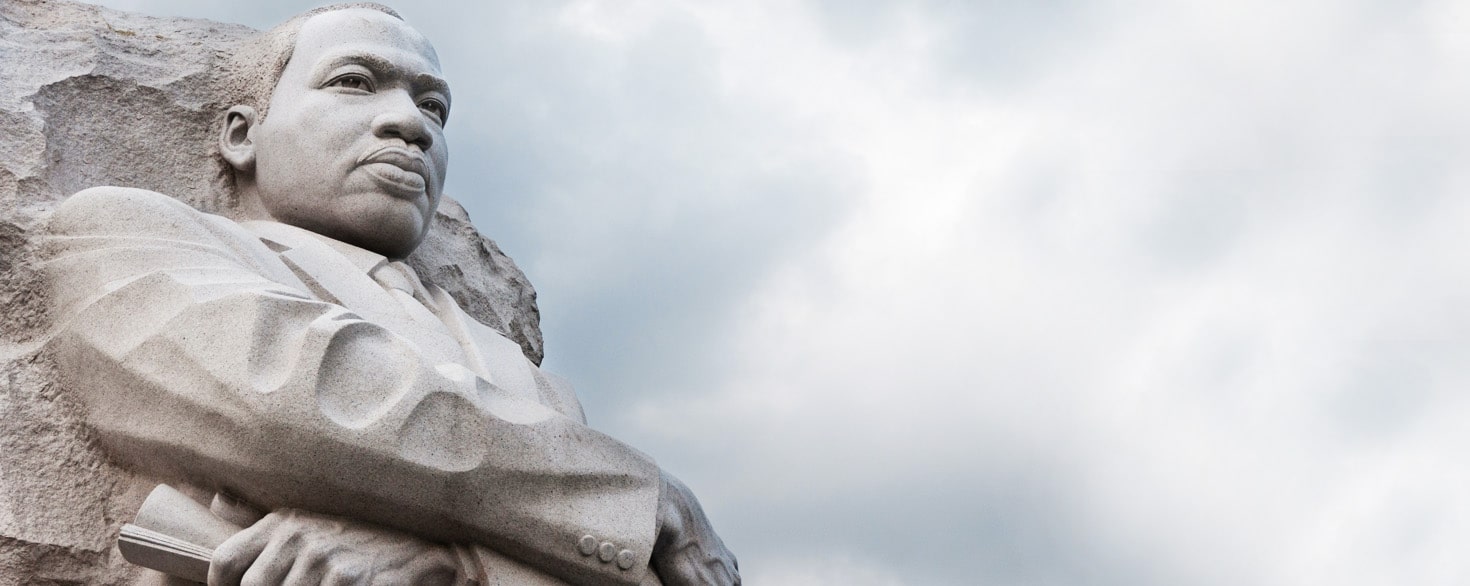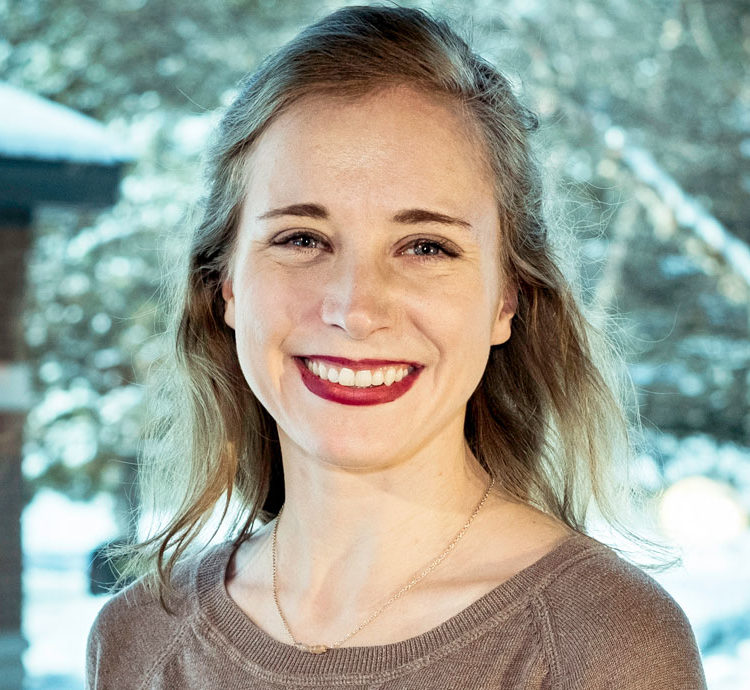Editor’s note: Below is an interview with Kevin Lavender Jr., assistant vice president of diversity, life calling and Christian community at Cornerstone University. In honor of Martin Luther King Jr. Day, Lavender reflected on the life and legacy of MLK. The interview has been edited for length and clarity.
CU: When you think of Dr. King’s legacy and leadership, what comes to mind for you?
KL: Leadership through uncertainty is one thing. His legacy is a reminder to me as a leader that, during the unknown times, I ask this question: How much am I seeking to know the known God? Oftentimes during uncertainty, it’s easy to focus on the uncertainty part, but God has revealed Himself in His Word so that we can know Him. How am I leaning into that instead of the fear of the unknown? I truly believe Dr. King did that as a young pastor, a young minister of the gospel and a leader of the bus boycott. It was very clear that he was not seeking that position—he was thrust into that position because of his notoriety as a minister. He didn’t know that the bus boycott was going to eliminate segregation on bus rides. Think about where you were at 25 or 26. How strong were your leadership skills at that time? At that age, he took on this national issue in one of the most racist states in the country.
Also, what comes to mind for me is Dr. King speaking truth to power in a fearless fashion. He never forgot the voiceless, the disenfranchised; he was an ambassador for truth, justice and genuine equality. Specifically, he did this in the face of death. While he was not perfect like Christ, I find a similarity to Christ in Dr. King’s obedience to his calling unto death. He frequently got death threats and bomb threats, and had to endure the constant surveillance of himself, his friends and his family by the FBI. But Dr. King was committed to his mission regardless of that. And he also valued the diverse perspective of others and let that inform his leadership. He was the figurehead, but he was not the only mind that contributed to the moment. I think that’s very important to remember.
CU: What aspect of Dr. King’s life inspires you the most?
KL: The first thing that resonated with me was Dr. King’s role as a father. I’m a father of three daughters. I call my daughters my queens—that is my term of endearment for them. I can resonate with being the head of my household as Dr. King was. I was always raised to know your home is your first ministry. To be honest, Dr. King struggled with that work-life balance. He was not always a present father physically, but his presence was felt by his children, and he was and is so deeply loved by them. This is a reminder to me to work to be more consistent with keeping a good work-life balance and be present first for my family, then the people.
My dad told me that nothing else should take precedence over your family. The fact that Dr. King had a close relationship with his father also resonated with me. I have a very close relationship with my dad—even sharing his name as Dr. King did with his dad, so I kind of feel that connection. He remained committed to his role as a preacher of the gospel, in the midst of him growing in notoriety as a civil rights leader. He could very easily have said, “I’ll put that Jesus stuff over here for now.” I think his servant leadership and modeling what he was hoping to inspire in others is inspirational.
CU: What can Cornerstone learn from Dr. King’s life and work?
KL: Dr. King said, “Darkness cannot drive out darkness—only light can do that.” I think as a campus community, we should reflect on how we are being that light in a world where the darkness is so attractive. His quote reminds me of John 8:12, “I am the light of the world. He who follows me will not walk in darkness, but will have the light of life,” as well as Matthew 5:16, “Let your light so shine before men, that they may see your good works and glorify your father who is in heaven.” While Dr. King was by far not a perfect man, I do believe that he was a light in darkness. I do believe that he was a beacon of hope to the hopeless.
Dr. King also said, “Injustice anywhere is a threat to justice everywhere.” That has parallels with Jeremiah 22:12-14, “Woe to him who builds his house by unrighteousness and his upper rooms by injustice, who makes his neighbors serve him for nothing and does not give him his wages.” I believe we as a campus community should be totally, unapologetically opposed to injustice. And I’m glad that Dr. King says injustice that exists anywhere is truly a threat to justice everywhere—meaning, don’t expect to get justice here if injustice exists over there. As we equip our students to be leaders and influencers for Christ, we have to call out injustice.
The last quote by Dr. King I want to mention is, “Our lives begin to end the day we become silent about things that matter.” We cannot take the approach of hiding from the issues of our society. We need to be about reconciliation and unity and healing. The only way we can do that is by calling out the things that are causing the injury.
CU: Why is it important to set aside time to remember Dr. King on this day?
KL: He was a great example of how a person’s calling can evolve over time. He was thrust into this position of being the person to speak against injustice. It’s a good reminder that if He calls us to it, He’ll bring us through it. It’s important to remember that Dr. King was deeply flawed. He was misunderstood and, frankly, he was inadequate for the calling. I truly believe that Dr. King acknowledged that. It’s really easy for us to get prideful. We have to remember that we’re flawed human beings who are inadequate without Christ. I think he also symbolizes the hope for a better America that is free of racism. I think many people in our society are still kind of longing for that. I personally believe that it will not arrive until Jesus Christ returns, but in the meantime, we can also help reduce the effects and impact of that in our society.
When we celebrate Dr. King, we often stop at “I Have a Dream.” Society at large has become comfortable with the Santa Claus-ification of Dr. King. The image in the dream is good. But that was one day of his life, one speech out of many. He realized later that the dream needed to be tempered with a solid realism, that we have to put some meat on this dream, and stop dreaming but start organizing and taking action. I just want us to look at his life in totality, and not just focus on the nice, easy stuff. Dr. King himself evolved in his thinking to become even more committed to his cause.
CU: How do you embody Dr. King in your work at Cornerstone?
KL: The centrality of vocation is serving others. Dr. King said that everybody can be great because anybody can serve. So the central thought of vocation is, how are you serving others? How are you using your gifts, talents, skills and abilities to serve others? That’s what I try to communicate in my work with students. When you get to CU, you get busy exploring your strengths and your gifts in ways that you can serve others. That’s rooted in Matthew 20:27, when Jesus said that the greatest of all is the person who serves. I want our students to know that they’re here for a specific reason, and they’re equipped with special gifts, talents and strengths to serve specific people. So let’s get busy exploring the many ways to do that. And Christ modeled that for us by taking on human flesh to reach us. That’s so humbling.
The other way I try to embody Dr. King is by dedicating myself to fighting against injustice. We have a lot of work to do. And one person can’t do it all, but I just think Dr. King exemplified the idea of, “Whatever I can do, I will.”
Recommended Reading for MLK Day
An avid student of Martin Luther King Jr’s life, Kevin Lavender provided a few reading recommendations to honor his legacy on MLK Day. Check out these books and articles for further reading on Dr. King’s life, legacy and ministry.
- “Quotations of Martin Luther King, Jr.”
- “My Life with Martin Luther King, Jr.” by Coretta Scott King
- “The Trumpet of Conscience” by Martin Luther King, Jr.






